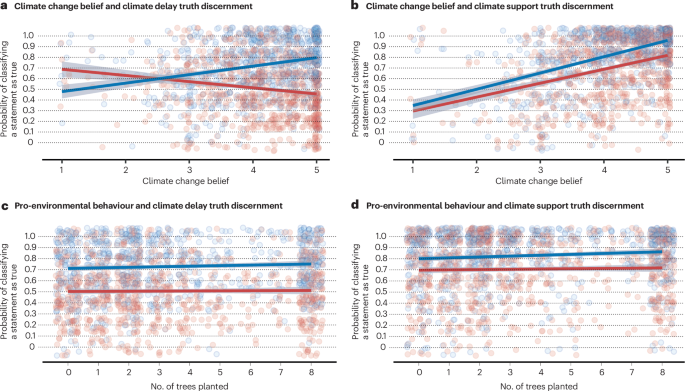Listen to the article
In a significant development for researchers studying misinformation, recent studies have begun challenging long-held assumptions about truth discernment and its effectiveness in combating false information. The findings suggest a more complex relationship between recognizing truth and resisting misinformation than previously thought.
A groundbreaking study published in Nature Human Behavior by Kozyreva et al. (2024) provides insights into how individuals process information in today’s complex media environment. The research indicates that the ability to identify factual content doesn’t necessarily translate into resilience against misinformation, particularly when emotional or political factors come into play.
This disconnect between truth recognition and misinformation resistance has profound implications for how researchers approach information literacy training programs. Traditional approaches have focused heavily on developing critical thinking skills with the assumption that improved analytical abilities would naturally lead to better resistance against false information.
Supporting this new perspective, Ruggeri and colleagues (2024) demonstrated in their British Medical Journal study that contextual factors often override cognitive abilities when people evaluate information. Their research showed that even individuals with strong analytical skills can fall prey to misinformation when it aligns with their pre-existing beliefs or emotional state.
The field has seen additional contributions from Spampatti, Hahnel, Trutnevyte, and Brosch (2024), whose work in Nature Human Behavior explored how information processing changes when addressing complex topics like climate change. Their findings suggest that specialized approaches may be necessary when addressing misinformation in different domains.
Pfänder and Altay’s forthcoming 2025 research presents a particularly compelling case for rethinking intervention strategies. Their work demonstrates that prebunking—preemptively warning people about misinformation tactics—may be more effective than traditional fact-checking approaches. This aligns with earlier findings by Roozenbeek et al. (2022), whose “inoculation theory” has gained traction as an alternative framework for building misinformation resistance.
“What we’re seeing is a paradigm shift in how we understand information processing,” said one researcher familiar with these studies. “The simple model of ‘better critical thinking leads to better truth discernment’ doesn’t fully capture the psychological complexity involved.”
The implications extend beyond academic discourse. As digital platforms struggle with the spread of misinformation, these findings suggest that platform design changes may be just as important as user education. Bak-Coleman and colleagues (2022) highlighted in their Nature Human Behavior paper how structural factors in social media environments can overwhelm individual cognitive defenses, regardless of a person’s truth discernment abilities.
This evolving understanding comes at a critical time when concerns about AI-generated misinformation are mounting. A recent Science publication by Allen, Watts, and Rand (2024) warned that as generative AI becomes more sophisticated, the challenge of discerning truth will only grow more difficult, potentially overwhelming even the most careful information consumers.
The research community appears to be pivoting toward more holistic approaches. Murphy et al. (2023) advocated in the Harvard Kennedy School Misinformation Review for multi-level interventions that address individual skills, platform design, and broader societal factors simultaneously.
Climate communication researchers have also noticed similar patterns. Nielsen and colleagues (2024) found in Nature Climate Change that knowledge about climate science alone doesn’t predict pro-environmental behavior or resistance to climate misinformation. Instead, social norms and structural factors play equally important roles.
As the field advances, researchers are increasingly calling for interdisciplinary approaches that combine insights from psychology, computer science, political science, and communications. The future of misinformation research will likely involve more nuanced models that account for the complex interplay between cognitive abilities, emotional responses, social dynamics, and technological environments.
This evolving understanding presents both challenges and opportunities for educators, policymakers, and platform designers committed to fostering healthier information ecosystems in an increasingly complex digital landscape.
Fact Checker
Verify the accuracy of this article using The Disinformation Commission analysis and real-time sources.




10 Comments
This is an important study that challenges the assumption that better truth discernment equals better resistance to misinformation. The complex relationship between these factors needs further exploration to develop more robust solutions.
Absolutely, the disconnect between truth recognition and misinformation resistance is a critical insight. Rethinking information literacy programs to address these nuances could lead to more impactful interventions.
The study’s revelations about the limitations of truth discernment skills in combating misinformation are quite sobering. This underscores the need for a more holistic and nuanced understanding of how people process information in the digital age.
Agreed, the traditional focus on critical thinking may be insufficient. Addressing the emotional, political, and psychological factors at play could be crucial in developing more effective interventions.
The findings on the limitations of truth discernment skills in combating misinformation are quite concerning. This underscores the need for a multi-pronged approach to address the growing threat of false information in the digital age.
Agreed, traditional approaches focused solely on critical thinking may fall short. A more comprehensive strategy targeting psychological, emotional, and political factors could be key to building true resilience.
This research provides valuable insights into the complexity of the misinformation challenge. The disconnect between truth recognition and resistance to false information is an important area for further study and intervention development.
Absolutely, these findings highlight the need to rethink information literacy programs and explore novel approaches that go beyond just improving analytical skills. A multifaceted solution is likely required.
Interesting research on the limitations of truth discernment skills in combating misinformation. The findings suggest a more nuanced approach is needed to build resilience against false information beyond just improving critical thinking abilities.
Agreed, the emotional and political factors at play can undermine even strong truth recognition skills. A multifaceted strategy focused on information literacy, source credibility, and psychological biases may be more effective.